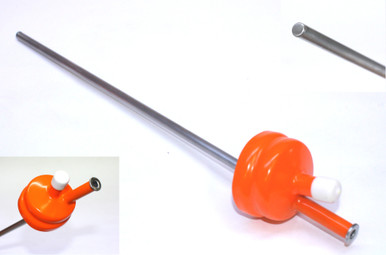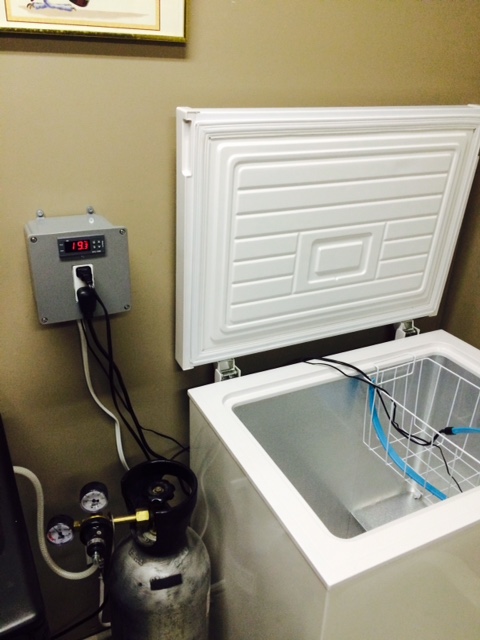martinlarosa
Active Member
- Joined
- Dec 9, 2014
- Messages
- 33
- Reaction score
- 0
Hi guys, what is the appropriate way of measuring the temp of the beer?
For what I've been researching it would be to make the stc-1000 work with the chamber temp, but set to a temp that makes the beer be at the desired temperature?
For example, I have the stc-1000 set at 18° C but the beer I think it is at 20° C ( The sticker themometer and a temp of a sample I took read that temp). So let's say that if I want to ferment at 20° I have to make sure the average temp of my fermentation chamber is 18°, making the tem controller to act on the chamber air and not the beer temp as that would cause lots of swings in temps right?.
Although I would imaging that this would be a problem if fermenting different yeasts or beers at the same time, as some might get hotter than others?
For what I've been researching it would be to make the stc-1000 work with the chamber temp, but set to a temp that makes the beer be at the desired temperature?
For example, I have the stc-1000 set at 18° C but the beer I think it is at 20° C ( The sticker themometer and a temp of a sample I took read that temp). So let's say that if I want to ferment at 20° I have to make sure the average temp of my fermentation chamber is 18°, making the tem controller to act on the chamber air and not the beer temp as that would cause lots of swings in temps right?.
Although I would imaging that this would be a problem if fermenting different yeasts or beers at the same time, as some might get hotter than others?




